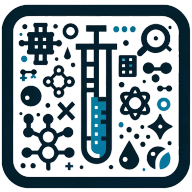6 Ethical Considerations for Drug Testing Pregnant Women
The conversation around drug testing for pregnant women is more pertinent now than ever before. This blog post opens with the challenge of limited options due to the lack of clinical trials and concludes with the need to balance benefits and risks carefully, presenting a total of six insightful perspectives. Ethical and medical considerations are at the forefront, making this a must-read for those concerned with both maternal and fetal health. Explore the nuanced viewpoints that highlight the complexity of this critical issue.
- Limited Options Due to No Trials
- Prioritize Fetal Safety in Research
- Ensure Clear Informed Consent
- Push for Equitable Access to Medications
- Respect Maternal Autonomy in Research
- Balance Benefits and Risks Carefully
Limited Options Due to No Trials
Ever noticed how most drug labels say, "Not recommended for pregnant women"? It's not because clinical trials found those drugs to be harmful—it's because no trials were done at all. And guess what? Pregnant women still get sick and still need treatment. But no trials mean limited options.
Why no trials? The answer's pretty obvious: clinical trials only happen when the potential benefits significantly outweigh the risks. Pregnancy cranks up the risk factor, so unless the benefit is undeniably worth it, no one's going to run that study. It's a tough trade-off, but it's one rooted in protecting both the mother and the baby.

Prioritize Fetal Safety in Research
When considering drug testing on pregnant women, it is crucial to ensure that the well-being of the fetus is a top priority. This means that research designs must be developed with the safety of the unborn child as a key consideration. Every stage of the study should focus on minimizing potential harm to the fetus while maximizing the benefits of the research outcomes. Protecting fetal health is essential to avoid any long-term negative effects on the child.
Ensuring the health and safety of both mother and child creates a solid foundation for ethical research practices. Researchers must adopt stringent safety protocols to uphold this priority. Let's work towards creating more stringent guidelines for fetal safety in research settings.
Ensure Clear Informed Consent
Informed consent in drug testing with pregnant women requires that participants fully understand the potential risks to their fetus. It is not enough to simply inform the mothers; the explanation must be clear and comprehensive. Potential adverse effects on fetal development must be transparent and discussed upfront. This ensures that pregnant women make truly informed decisions about their participation.
It's about empowering expectant mothers with knowledge and preserving their right to make choices for their unborn children. Clear, detailed communication prior to participation is crucial. We need to advocate for better communication standards in the informed consent process for research.
Push for Equitable Access to Medications
Justice in drug testing for pregnant women calls for equitable access to safe medications. This means that all pregnant women, regardless of their background, should have the opportunity to benefit from medical advancements. Research should aim to discover safe and effective treatments for diverse populations of pregnant women.
The ethical approach demands that no group is unfairly excluded from receiving potential benefits of new drugs. Equitable access can help reduce health disparities and improve maternal and fetal health outcomes. We should push for fair inclusion criteria in drug research to ensure justice for all.
Respect Maternal Autonomy in Research
Maternal autonomy in research participation needs careful consideration to respect the mother's rights. Pregnant women should have the freedom to choose whether to participate in research without feeling coerced or pressured. Autonomy is about respecting the individual's right to make decisions regarding their own body and their fetus.
Proper support and unbiased information must be provided to aid in this decision-making process. This respect for autonomy helps to uphold ethical standards and build trust in the research community. We should always strive to maintain and promote the autonomy of research participants.
Balance Benefits and Risks Carefully
Balancing the potential benefits of drug testing with unknown risks to the fetus is paramount in ethical research. It involves weighing the potential positive outcomes of new treatments against the possible adverse effects on fetal development. Researchers must carefully evaluate the risks and benefits, ensuring that the potential advantages justify any uncertainties.
This balance is essential to avoid causing unintentional harm to the fetus while still advancing medical knowledge. An ethical approach must prioritize the safety of both the mother and the fetus while seeking to contribute valuable information. We must continue to refine our methods to achieve this delicate balance in drug testing.

